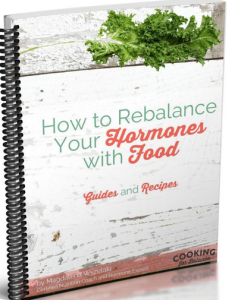
Research published in 2014 shows that:
genetic variation in the oxytocin receptor gene (OXTR) has been implicated in anxiety, depression and related stress phenotypes
You can read more about this and other research on oxytocin, social anxiety and depression in this blog post: Oxytocin and social anxiety, pyroluria and depression?
New research published in the current issue of the journal Frontiers in Genetics now shows that a marker in the blood can identify women who might be at particular risk for postpartum depression (and presumably postpartum anxiety too). This is a genetic variation in the oxytocin receptor gene (OXTR).
Here are some excerpts from the study:
Postpartum depression (PPD) affects up to 19% of women, negatively impacting maternal and infant health.
Reductions in plasma oxytocin levels have been associated with [postpartum depression] /PPD and heritability studies have established a genetic contribution. Epigenetic regulation of the oxytocin receptor gene (OXTR) has been demonstrated and we hypothesized that individual epigenetic variability at OXTR may impact the development of [postpartum depression] /PPD and that such variability may be central to predicting risk.
These data indicate that epigenetic variation that decreases expression of OXTR in a susceptible genotype may play a contributory role in the etiology of PPD.
You can read the complete study abstract here: Interaction between oxytocin receptor DNA methylation and genotype is associated with risk of postpartum depression in women without depression in pregnancy and the full paper here
Here is an extract from the press release:
We can greatly improve the outcome of this disorder with the identification of markers, biological or otherwise, that can identify women who may be at risk for its development,” said Jessica Connelly, an assistant professor of psychology at University of Virginia, who is the senior author of the study. “We know that women who have experienced depression before pregnancy are at higher risk of developing depression in the postpartum period. However, women who have never experienced depression also develop postpartum depression. These markers we identified may help to identify them, in advance.
You can read the full press release from the University of Virginia here: Researchers uncover blood markers to identify women at risk for postpartum depression
The oxytocinergic system is important for both the mother and her child. From a research paper published last month in Anxiety and Depression:
Maternal postpartum depression carries long-term detrimental effects on children’s well-being
when maternal [oxytocin] / OT was medium or low, child [oxytocin] / OT response was negatively impacted by maternal depression
when maternal [oxytocin] / OT was high, child [oxytocin] / OT was unaffected, suggesting that maternal [oxytocin] / OT functionality buffers the effects of depression on the child
You can read the abstract here: Maternal Depression and Child Oxytocin Response; Moderation by Maternal Oxytocin and Relational Behavior
It would be wonderful to see oxytocin levels and OXTR gene testing being done in women planning to have children, especially if they have a history of depression and anxiety, or if there is a family history of depression and anxiety (postpartum or otherwise).
If you’ve had either tested please share in the comments.




